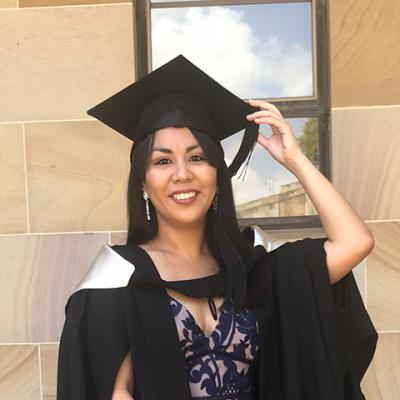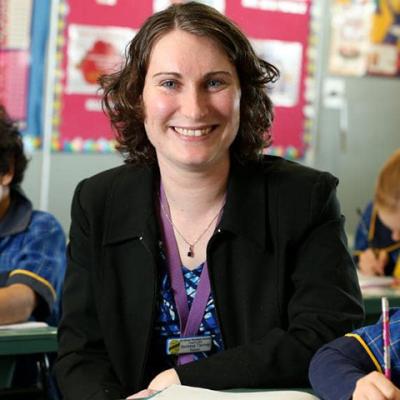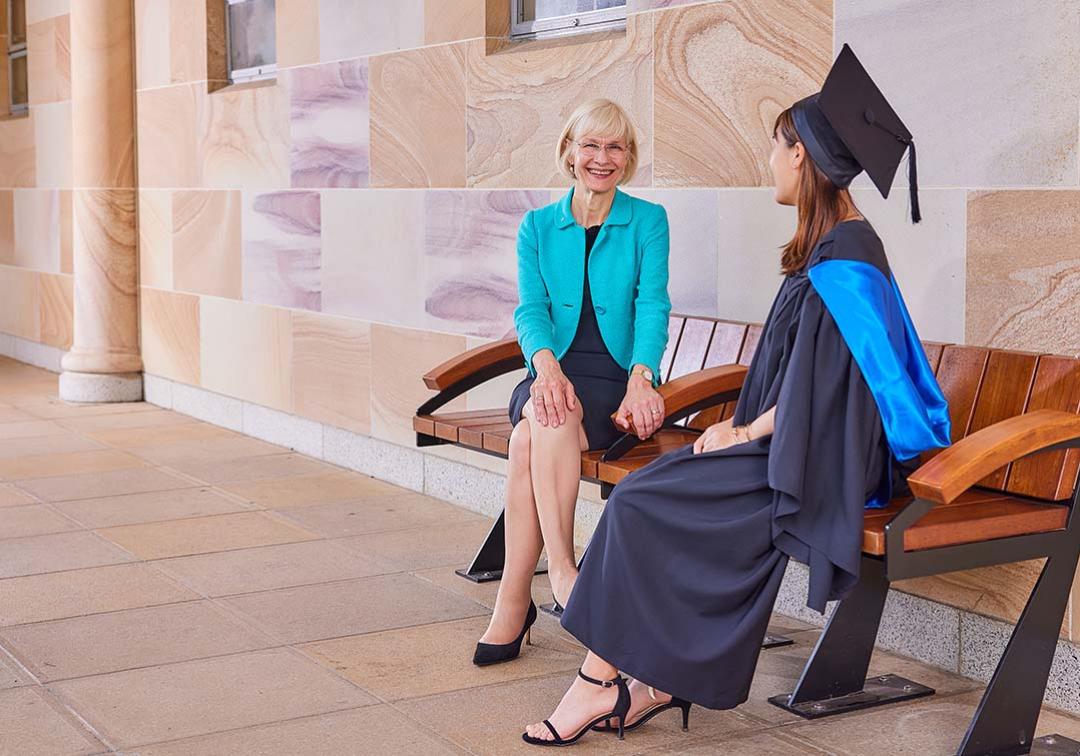
Bachelor of Education (Primary) (Honours)
Overview
You have the opportunity to create a thesis that is unique to what you are passionate about, you can tailor it to learn more about your craft and students.
Gain the preparation and qualifications needed for a variety of employment opportunities in educational environments by creating a research project in an area you are passionate about.
The program develops capacities required by teachers working in the information age, a time of rapid change where education is recognised as playing an increasingly important role in society. The program develops teachers across prep to year 6, spanning the Early and Middle Phases of Learning. In particular, the program focuses on the development of skills, understandings and attributes that enable graduates to demonstrate specialist abilities with respect to:
- Literacy and numeracy
- Diversity and differentiated learning
- Leadership and research
- Connected practicum
Program highlights
- High achieving students in the Bachelor of Education (Primary) can transfer into this program at the end of their third year and undertake advanced coursework and write a thesis.
- Get early experience in classrooms. Spend 10 days in a school in your first year, where you'll observe and provide hands-on help.
- Learn from the best. World-renowned educators will teach you flexible and creative ways to cater for the diverse learning needs of children.
- Study with a smaller cohort and build a support network and strong friendships with your peers.
How you'll learn
Your learning experiences are designed to best suit the learning outcomes of the courses you choose.
- Lectures
- Tutorials
- Work placements
- Overseas study
- Research experience
- Workshops
Placements and work experience
Students undertaking a Bachelor of Education (Primary) (Honours) program must complete 80 days of supervised and assessed professional experience/practicum placement throughout the program.
Every effort is made to place students within a reasonable distance of their home base but they can be expected to travel up to 90 minutes due to public transport connections and incur costs associated with travel and possible lost income over this period. Students are generally placed at Ipswich, Brisbane, and southeast Queensland (including the Gold Coast and Sunshine Coast) and are encouraged to explore the option of a rural placement. Financial assistance may be available to assist with travel and accommodation costs for rural placements.
Students are required to have a current Blue Card (Working with Children Check) before commencing practicum. Students can apply for a Blue Card through the School of Education and should do so three months before their practicum is due to commence. The Professional Experience Handbook provides information about practicum and school experience requirements and is available from the School of Education.
What you'll study
At UQ, degrees are called 'programs' and subjects are called 'courses'. Here's a sample of the courses you could study in this program:
- A Sociological Orientation to Education
- Early Years Curriculum and Pedagogical Foundations
- Introduction to Role of Science and Technology Education in Society
- Introduction to Primary Professional Experience
Career possibilities
Our programs prepare you for your first job and beyond. Here are some of the careers you could be on your way to:
- Higher education compliance manager
- Director of studies
- Learning designer
- Educational technologist
- Senior program lead
- Academic services officer
- International school head
- Primary school teacher
- Associate professor of special education
Professional memberships
When you graduate, you may be eligible for memberships with the following professional organisations. Contact the organisation to find out how to become a member.
- Queensland College of Teachers
Professional registration
When you graduate, you may be eligible for registration with the following professional organisations. Contact the organisation to find out how to register.
- Queensland College Of Teachers
Program accreditation
The Bachelor of Education (Primary) (Honours) is accredited by:
- Australian Institute For Teaching And School Leadership
Stories
See all stories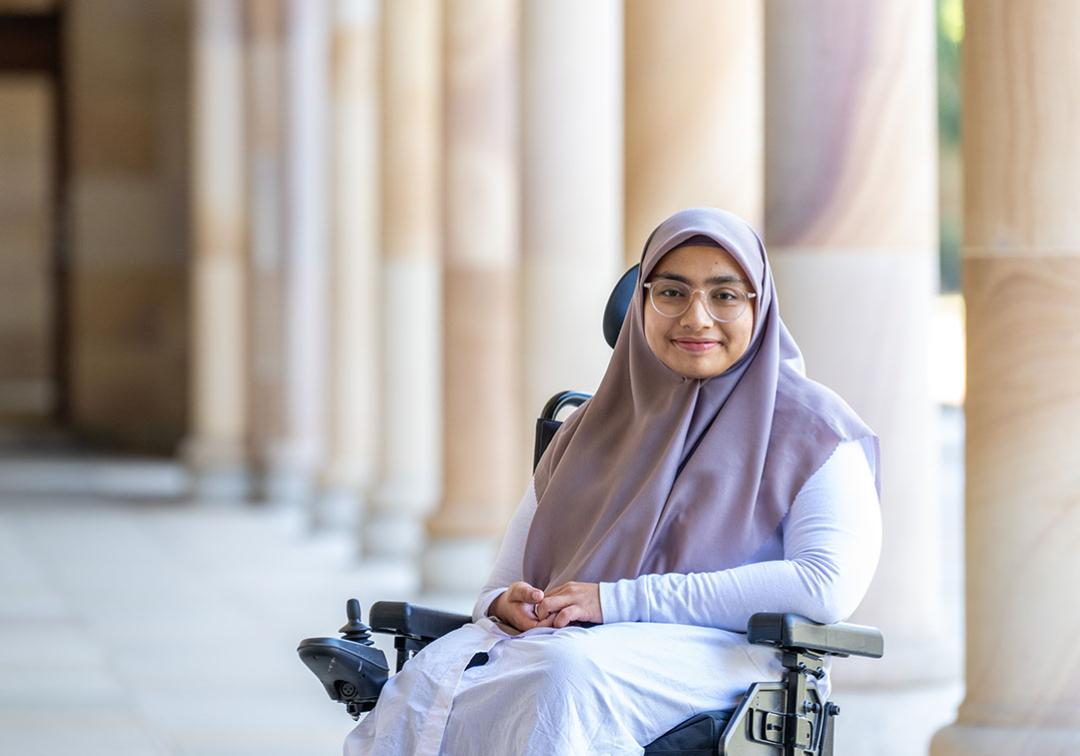
Uni life
What’s it like to study education as a postgraduate?
6-minute read
Stories
See all stories
Uni life
What’s it like to study education as a postgraduate?
6-minute read
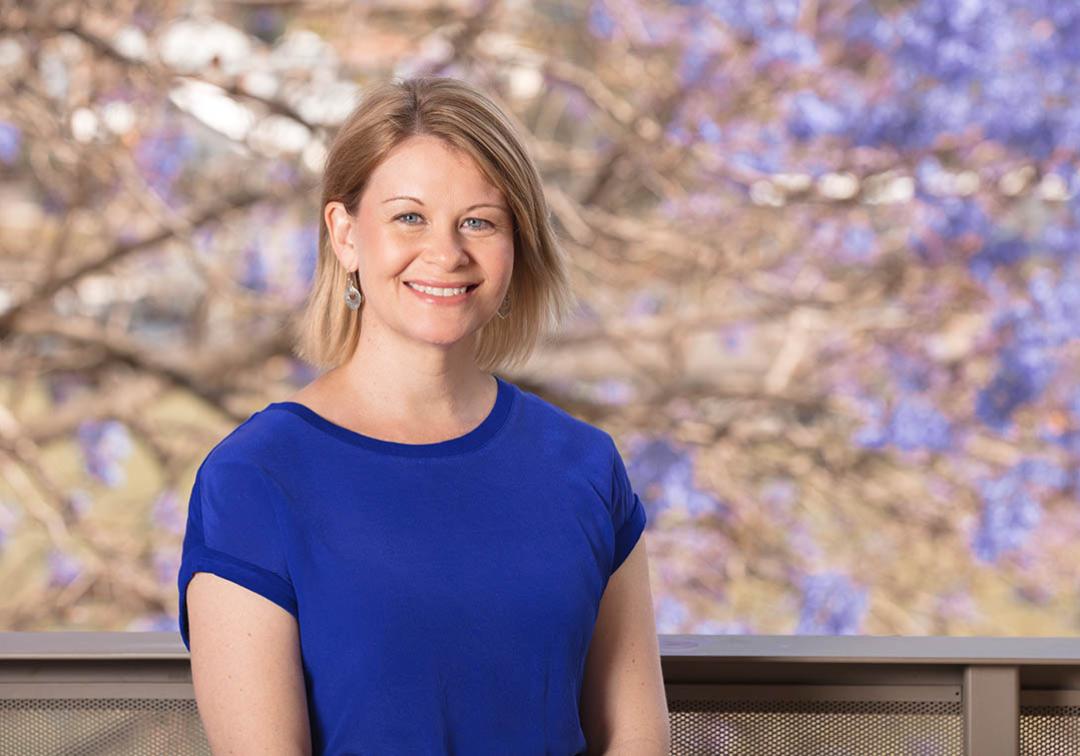
Study tips
Why study a Master of Educational Studies?
3-minute read
Entry requirements
Prerequisites
- successful completion of 48 units towards the first three years of a Bachelor of Education (Primary) degree, including all compulsory BEd(Primary) Core Courses; and
- have gained a grade point average (GPA) of 5.5 across the courses that can be credited towards the BEd(Primary)(Hons).
Prerequisites
- successful completion of 48 units towards the first three years of a Bachelor of Education (Primary) degree, including all compulsory BEd(Primary) Core Courses; and
- have gained a grade point average (GPA) of 5.5 across the courses that can be credited towards the BEd(Primary)(Hons).
English language requirements
IELTS score of 7.5 overall; speaking 8; listening 8, reading 7, writing 7. For other English Language Proficiency Tests and Scores approved for UQ.
TOEFL iBT (Paper Edition), PTE Academic, BE, CES, and OET are not accepted.
There are other ways to meet the English language requirements. For some programs, additional conditions apply.
Inherent requirements
To complete this degree, you have to meet its inherent requirements by demonstrating essential skills and attributes. Read the inherent requirements before you apply.
Student visas
International students who are accepted into full-time study in the Bachelor of Education (Primary) (Honours) are eligible to apply for an Australian student visa (subclass 500).
There are a number of requirements you must satisfy before a visa is granted, including the Genuine Student (GS) requirement.
Additional application information
Students are required to have a current Blue Card (Working with Children Check) before commencing the practicums. Students can apply for a Blue Card through the School of Education and should do so three months before their practicum is due to commence. The Professional Experience Handbook provides additional information about practicum and school experience requirements and is available from the School of Education website.
All students are required to successfully meet the Literacy and Numeracy Test for Initial Teacher Education (LANTITE) standards prior to graduation. Please contact the School of Education for further details (education@uq.edu.au) or visit the School of Education office. For more information on the test including sample tests, indicative fees, testing institutions and registration information, please visit the School of Education LANTITE website and the Australian Council for Educational Research (ACER) website.
Additional application information
Students are required to have a current Blue Card (Working with Children Check) before commencing the practicums. Students can apply for a Blue Card through the School of Education and should do so three months before their practicum is due to commence. The Professional Experience Handbook provides additional information about practicum and school experience requirements and is available from the School of Education website.
All students are required to successfully meet the Literacy and Numeracy Test for Initial Teacher Education (LANTITE) standards prior to graduation. Please contact the School of Education for further details (education@uq.edu.au) or visit the School of Education office. For more information on the test including sample tests, indicative fees, testing institutions and registration information, please visit the School of Education LANTITE website and the Australian Council for Educational Research (ACER) website.
Fees and Scholarships
Indicative annual fee
Approximate yearly cost of tuition (16 units). Your fees will vary according to your selected courses and study load. Fees are reviewed each year and may increase.
$5,008
2024
Fee information for 2025 is not yet available. Fee information displayed is for 2024.
$5,008
2025
Approximate yearly cost of tuition (16 units). Your fees will vary according to your study load. Fees are reviewed each year and may increase.
AUD $43,200
2024
Fee information for 2025 is not yet available. Fee information displayed is for 2024.
AUD $43,200
2025
Additional costs
- There may be additional course costs associated with travel or materials.
- Books, technical notes etc (approx $150)
- Students are expected to fund travel and living expenses associated with placements, some of which may be outside the Brisbane metropolitan area.
- All students are required to successfully meet the Literacy and Numeracy Test for Initial Teacher Education (LANTITE) standards prior to graduation.
- Students are responsible for the cost of the LANTITE (approximately $196 or $98 per test). ACER website (https://teacheredtest.acer.edu.au) lists current fees.
- Please contact the School of Education for further details (education@uq.edu.au) or visit the School of Education office.
- For more information on the LANTITE tests, including sample tests and registration information, please visit the Australian Council for Educational Research website: https://teacheredtest.acer.edu.au
- Students are responsible for the cost of transportation and accommodation to attend residential schools or practicals.
- A clinical uniform shirt is required and may be purchased through the School.
Government assistance
Financial aid
As an international student, you might be eligible for financial aid – either from your home country, or from the Australian Government.
HECS-HELP
Domestic places in the Bachelor of Education (Primary) (Honours) are Commonwealth Supported. This means the cost of your education is shared between you and the Australian Government.
Instead of tuition fees, Commonwealth Supported students pay what are called student contribution amounts.
HECS-HELP is an Australian Government loan scheme to assist eligible students with the cost of their student contribution amounts.
Centrelink support
The Australian Government offers a number of income-support payments to eligible Australian university students.
Scholarships
You may be eligible for more than 100 scholarships, including:
How to apply
Applying online
You can transfer into this honours program at the end of your third year in the Bachelor of Education (Primary). Submit a program change request in mySI-net.
Applying online
You can transfer into this honours program at the end of your third year in the Bachelor of Education (Primary). Submit a program change request in mySI-net.
Important dates
If you’re studying Year 12 in Australia, go to the QTAC website to check the closing date for this program.
If you’re applying to UQ, the closing date for this program is:
- To commence study in semester 1 - November 30 of the previous year.
To learn more about UQ dates, including semester start dates, view the Academic Calendar.
Aboriginal and Torres Strait Islander applicants
For support with applying – or if you have any questions about university life – get in touch with our Aboriginal and Torres Strait Islander Studies Unit.
Explore other programs
Express yourself. And your interest.
They say choosing a degree is hard, which is why we've made it easy. Register your interest and we'll send you everything you need to know about applying to UQ.


